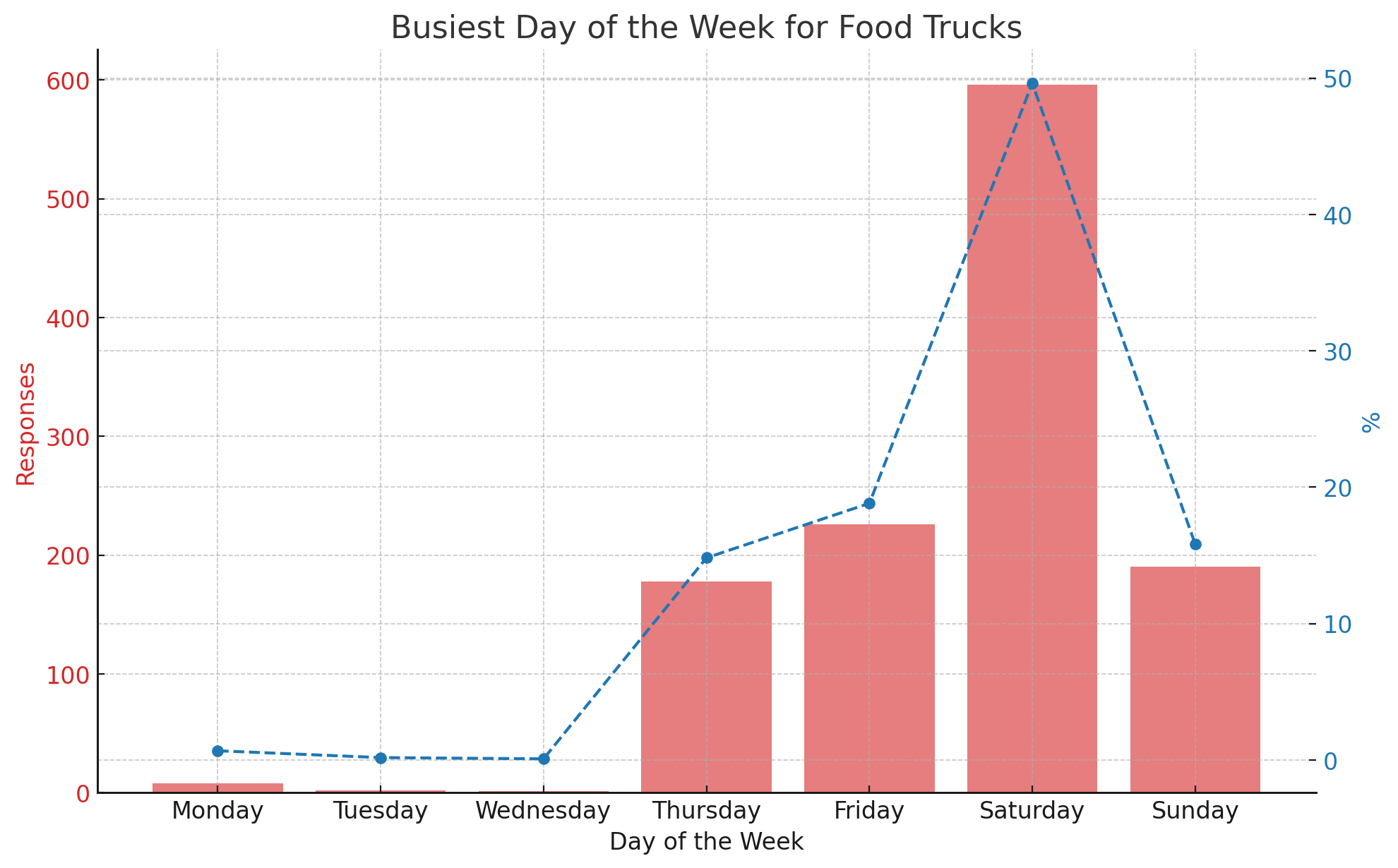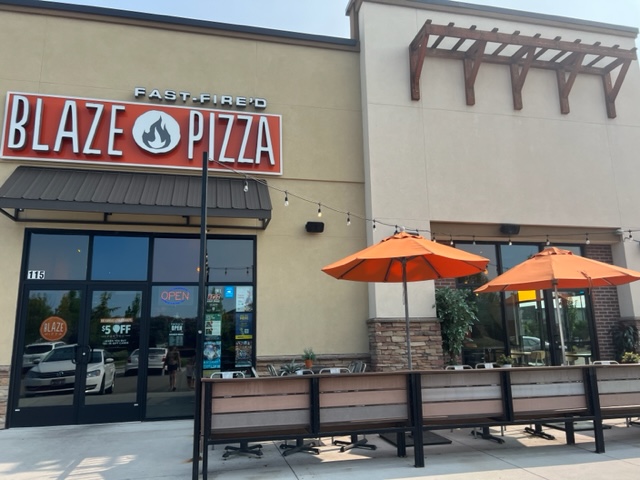As we navigate the evolving landscape of consumer behavior, it’s clear that food trucks are more than just a passing trend, especially when considering the shifting priorities of Millennials. Now, as this generation ages, with most falling into the 25 to 40-year-old bracket, their impact on the food industry is significant and multifaceted. Much of this generation is “all grown up” with families and possibly mortgage.
What does all this mean for food truck owners owners? Is this still an important demographic to appeal to? In this article, I break down ways you can appeal to this generation of roughly 80 million potential diners.
Page Contents
Who Are Millennials?
Millennials, also known as Generation Y, are the demographic cohort following Generation X and preceding Generation Z. They are typically defined as people born between 1981 and 1996, though some definitions may slightly vary the start and end years. This means that as of 2023, millennials would be between the ages of 27 and 42.
Millennials are known for being the first generation to grow up with the internet and digital technology, which has significantly influenced their behaviors, expectations, and lifestyles. They are often characterized by their values and preferences, which include a focus on work-life balance, a preference for experiences over material possessions, and a strong sense of community and social responsibility.
This generation has experienced significant economic, technological, and social changes during their formative years, such as the rise of the internet, social media, and smartphones, as well as economic disruptions like the Great Recession. These experiences have shaped their attitudes towards technology, the workplace, and societal issues.

The perception of the Millennial generation from the mid-2000s.
What Are Millennials Looking For?
Despite their increasing financial stability, Millennials continue to value experiences over material possessions, a trend that has not waned with age. Dining out, for them, is not just about convenience but an opportunity to explore diverse, authentic flavors and innovative dining formats. Food trucks, with their ability to offer gourmet, niche culinary experiences at a fraction of the cost of traditional restaurants, align perfectly with these preferences.
Variety and Customization
Millennials demand choices and the ability to personalize their order. Millennials expect variety, more choices, customization and their ability to be able to personalize their food experience.
“There’s something about food trucks that just feels authentic and personal. The chefs often interact with you, sharing stories behind their dishes.” says Mia Campbell, a 34-year old school teacher from Denver. “This is one reason I continue to support food trucks.”
History and Background
Millennials want some substance behind where they eat. They like to know the story about the places they eat, they think it’s key to feed one’s heart in addition to one’s stomach when going out. This is a place where food trucks can take take advantage by providing the history of how the mobile business came about to be what it is.
“There’s something incredibly authentic about eating at a place where you can literally see your meal being prepared in front of you.” says Ava Thompson, a 27-year old graduate student at Colorado State. “When the owners share why they started their food truck, whether it’s to bring a taste of their home country to the streets or to innovate within the local food scene, it adds a whole new layer to the dining experience.”
Ingredients
For Millennials, quality ingredients are non-negotiable. This demographic has grown up in a time of increased awareness about health, sustainability, and the origins of food. They’re informed consumers who prioritize transparency in their dietary choices, seeking out meals that are not only delicious but also responsibly sourced. Food trucks, with their ability to adapt quickly to consumer preferences and their emphasis on fresh, local produce, resonate deeply with Millennial values.
This insistence on quality ingredients stems from a broader desire among Millennials for authenticity in all aspects of their lives, including what they eat. They want to know the story behind their meals — where the ingredients come from, how they were grown, and who is preparing their food. This connection to the food’s origin and preparation process is something that food trucks often excel at, offering a direct line from farm to table in a way that traditional restaurants sometimes cannot.
Socially Responsible
Another new trend with this demographic is connecting with companies and businesses that are socially responsible and trustworthy. The bottom line is if they can’t trust you to take care of the world outside your mobile business, let alone your own workers, then they won’t trust you to serve quality food.

Millennials continue to support food trucks.
Do Millennials Have Enough Money to Eat Out?
In an economic landscape vastly different from a generation ago, millennials find themselves grappling with reduced purchasing power, a stark contrast to their parents’ financial capabilities at the same age. Stagnant wages, soaring education costs, and an inflated housing market contribute to this generational divide.
Wages vs. Inflation: While nominal wages have seen growth, when adjusted for inflation, the real wage increase for most workers has been minimal over the past few decades. The Pew Research Center highlights that after adjusting for inflation, today’s average hourly wage has about the same purchasing power it did in 1978.
Education Costs: The cost of higher education has skyrocketed, with the College Board reporting that the average annual cost of tuition and fees at a private four-year college has risen from $15,160 in 1988-1989 to $35,830 in 2018-2019, after adjusting for inflation.
Housing Market: In some states like California, the median price for a home is now $791,490. This surge has made homeownership a distant dream for many in the millennial cohort and eaten into the discretionary income of this group.
Student Loan Debt: The burden of student debt further compounds millennials’ financial challenges. The Federal Reserve states that the total student loan debt in the U.S. has surpassed $1.6 trillion with millennials holding a substantial share.
In summary, despite being the most educated generation, millennials confront an economy where their money buys less, saving for the future is increasingly difficult, and the milestones their parents achieved, such as homeownership and debt-free living, are harder to attain.
Should You Continue Marketing to Millennials?
Despite the economic challenges this generation has faced, you don’t want to overlook Millennials at your food truck. They remain a valuable demographic for food truck vendors for a number of reasons.
- Preference for Experiences Over Material Goods: Millennials have shown a strong preference for spending on experiences, including dining out, over buying material items. Food trucks offer unique and memorable dining experiences that cater to this desire, making them appealing to the Millennial consumer base.
- Value-Driven Spending: While Millennials are cautious with their spending due to economic challenges, they also prioritize value and authenticity in their purchases. Food trucks often provide high-quality, authentic culinary experiences at a lower cost compared to traditional sit-down restaurants, aligning with Millennials’ value-driven spending habits.
- Desire for Convenience and Variety: Millennials value convenience, flexibility, and variety in their dining options. Food trucks excel in these areas by offering a wide range of culinary choices and the convenience of various locations, catering to the lifestyle and preferences of the Millennial consumer.
- Increased Financial Stability: As Millennials age and progress in their careers, many are reaching greater levels of financial stability. This increases their discretionary spending power, including spending on dining out, making them an increasingly attractive market segment for food truck vendors.
Generation Y is the most dominant demographic today. However, just making your name known won’t guarantee they’ll step up to your service window. As you can see, it takes a lot of factors to grab their attention and their business. Don’t ignore this important age group in your mobile food business.




